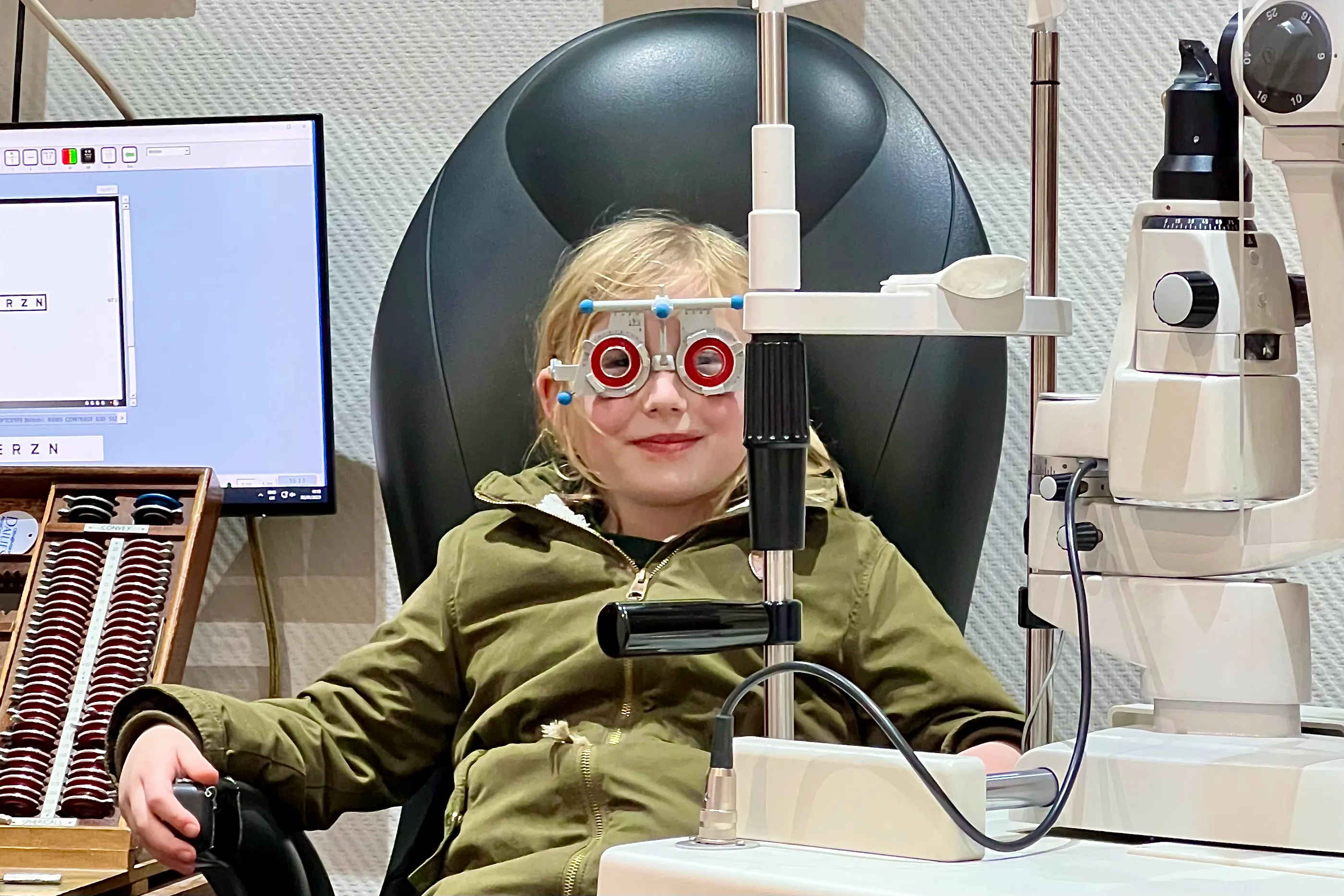Collaborative post by another author. Are you concerned that your child might have some sight problems? It can be difficult to know what signs to look out for and what actions to take to help your child in the best way possible.
What signs should you be aware of that show your child might be struggling to see?
There are a number of small signs you should look out for that could be signs that your child is having difficulty seeing as they should.
Tilting – If your child often turns their head from side to side when looking at something, this could be because of a refractive error or eye misalignment.
Avoidance – Does your child avoid reading or taking part in other activities that involve close-up focus such as board games or drawing? They may find these frustrating due to a sight issue.
Reading difficulties – When they are reading, if your child often loses their place on the page and is not able to keep track of the words, this could be the result of various vision problems.
Attention – Potentially less obvious than the other signs, but a short attention span can actually be caused by vision difficulties.
Why is it essential to take them to the opticians if you have any concerns?
Eye problems, as explained above, often manifest in different ways and are not always obvious just from looking at the eyes. There is a range of sight issues that can only be identified by a professional optometrist and because of this it is very important to seek their advice should you have any concerns.
Opticians’ appointments should not only be booked when you have cause for worry but should be undertaken regularly to keep on top of your child’s sight which can change over time. While they may not currently be experiencing any issues, that is not to say this will always be the case. Even before children can read the optician can test their vision and look for problems with a child's sight.
As well as sight, frequent eye tests can help to pick up on early signs of eye disease, as well as a range of other health conditions such as high blood pressure and diabetes.
Why should you give your child different options for eye care?
If your child does have an issue that requires eye care, this may be challenging for them to deal with. Many children find change difficult and so having to do things differently, including wearing glasses, can be overwhelming.
Therefore, keeping your child as involved in the decision-making process as possible is crucial in order to comfort them and allow them to assess the options for themself if they are of an appropriate age. While glasses may be recommended for younger children, contact lenses can be worn from age 11 in some cases. If your child is 11 or older, it could be worth discussing the pros and cons of contact lenses with them and their optician and seeing which they would prefer based on how comfortable they feel and the lifestyle they lead.



.jpg)

.jpg)

.jpg)
.jpg)










No comments
Thanks for your comment (unless it's spam in which case, why?)